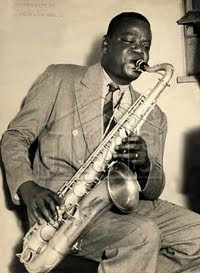Antônio Rago - Regional & Solo Violão
 The importance of regional and national radio networks cannot be overestimated in the process of spreading choro and making it a significant Brasilian artform.The first radio broadcast in Brazil was aired September 7, 1922 to celebrate the centennial of Brasilian independence. In this first broadcast Pixinguinha and his Oito Batutas were featured playing examples of the group's repertoire, including choros. From then on soon evolved the professional choro ensembles that became the workhorse of the radio industry in the 1930s and 1940s, the conjuntos regionais. These ensembles were based on the choro terno of guitar, cavaquinho and melody instrument (- usually flute) augmented by pandeiro and the seven-string guitar, and they were responsible for accompanying singers and instrumentalists in a wide array of styles. Through radio, the sound of the regoinais reached even the most remote part of the nation, where it became known not just as the music of Rio da Janeiro but as the music of the entire nation. The regionais were usually named after the lead player and they functioned as in-house orchestras, accompanying singers, playing dance music and - choros. These groups also provided background music and music to fill in between acts on live radio shows. The radio regionais often performed live in front of studio audience and were expected to accompany any and all types of repertoire of the day. The demand of high level of performance expected from the musicians helped refining choro in the way we know it today. (Info excerpted from T.E. Livingston-Isenhour & T.G.C. Garcia, "Choro, A Social History of a Brazilian Popular Music" (2005), p. 88-91)
The importance of regional and national radio networks cannot be overestimated in the process of spreading choro and making it a significant Brasilian artform.The first radio broadcast in Brazil was aired September 7, 1922 to celebrate the centennial of Brasilian independence. In this first broadcast Pixinguinha and his Oito Batutas were featured playing examples of the group's repertoire, including choros. From then on soon evolved the professional choro ensembles that became the workhorse of the radio industry in the 1930s and 1940s, the conjuntos regionais. These ensembles were based on the choro terno of guitar, cavaquinho and melody instrument (- usually flute) augmented by pandeiro and the seven-string guitar, and they were responsible for accompanying singers and instrumentalists in a wide array of styles. Through radio, the sound of the regoinais reached even the most remote part of the nation, where it became known not just as the music of Rio da Janeiro but as the music of the entire nation. The regionais were usually named after the lead player and they functioned as in-house orchestras, accompanying singers, playing dance music and - choros. These groups also provided background music and music to fill in between acts on live radio shows. The radio regionais often performed live in front of studio audience and were expected to accompany any and all types of repertoire of the day. The demand of high level of performance expected from the musicians helped refining choro in the way we know it today. (Info excerpted from T.E. Livingston-Isenhour & T.G.C. Garcia, "Choro, A Social History of a Brazilian Popular Music" (2005), p. 88-91)
In 1950, the Regional do Rago won the price as Best Regional Group of the year. Rago had his own show on TV Tupi, the first Brazilian television. He also wrote erudite music, like "Flor Triana" and "Sonatina Em Lá Menor". Rago released several LPs of solo work, unfotunately none of these have been re-issued on cd. However, you have an opportunity to listen to some of the recordings by Antônio Rago in one of the programs by Fábio Zanon from Rádio Cultura, SP, to learn more click here
(above info excerpted from article by Alvaro Neder in AMG)
Jo







.jpg)
